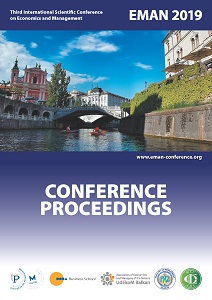EXTENDED PRODUCER RESPONSIBILITY – THE ANSWER TO IMPLEMENTING CIRCULAR ECONOMY
EXTENDED PRODUCER RESPONSIBILITY – THE ANSWER TO IMPLEMENTING CIRCULAR ECONOMY
Author(s): Elena Diana Căpriță
Subject(s): Economy, Business Economy / Management
Published by: Udruženje ekonomista i menadžera Balkana
Keywords: Circular economy;extended producer responsibility;recycle;waste;
Summary/Abstract: The implementation of sustainable development principles and the prioritization of the circular economy as a healthy alternative to economic growth force manufacturers to change their vision of production by incorporating effective measures and innovative techniques in order to protect the environment. Each Member State, including Romania, committed itself to the implementation of European legislation last year by properly transposing the circular economy package and ensuring sustainable economic development through the implementation of responsible production principles. An eloquent example would be the „polluter pays” principle, which implies the continued responsibility of producers and their involvement in a European Sustainable Development Mechanism, by internalizing the financial effort to protect the environment in the final price of the product, at the shelf. Although this principle was governed by Directive 2004/35/EC on Environmental Liability, transposition of the Directive has been progressively slow, with great differences between the Member States, even though the principle from which it started was the same: European producers to be accountable for both the pollution prevention action and the repair of any environmental damage, by providing the necessary expenses both with the prevention and the repair of the damages. The extended producer responsibility, as provided for in the European circular economy package, must be implemented by identifying sustainable production practices that do not jeopardize the productivity indices of economic agents. It seems to be the equation that will determine Europe’s success in the battle of global economic development (especially with the United States and with China), the main unknown of which consists precisely in the identification of innovative production methods that respect the very fragile economy- environment ratio.
- Page Range: 689-696
- Page Count: 7
- Publication Year: 2019
- Language: English
- Content File-PDF

